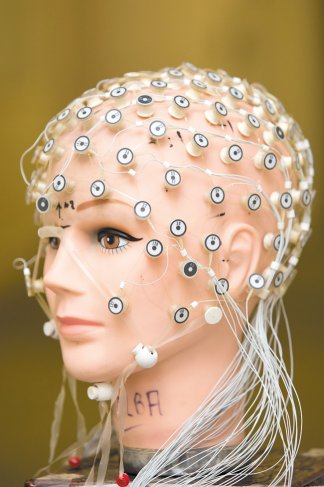Fixing ‘Broken Brains’
Dr. Michael Russo
Neurologist at Honolulu Neuroscience Clinic
Where did you receive your schooling and training?
I graduated from a small school in New Jersey called Princeton University, then Chicago Medical School. From there, I studied psychiatry at New York Medical College, and studied neurology at New York University, Bellevue Hospital, Manhattan VA Hospital, Queens Square Hospital in London and National Institutes of Health in Bethesda, Md. I studied sleep medicine at Walter Reed. I am currently working toward a second doctorate of natural medicine and a Ph.D. in integrative medicine at Quantum International University.
mw-dih-dr-michael-russo-ac-05
How long have you been in practice?
I graduated from medical school in 1986, practiced for the U.S. Army for 26 years until I retired in 2012 and opened my own neurodiagnostic and treatment center at 320 Ward Ave., Suite 101. Having my independent practice means that I do not work for a hospital, I work directly for the patients.
What attracted you to the field of neuroscience?
The brain and the mind have the capability to send man to the moon, send submarines to the depths of the oceans and build steel and glass towers that touch the sky. To do this took dreams ―someone’s dreams. I wanted to work on the part of the body that enables us to achieve our dreams. Nothing is more powerful and more important than the human brain and mind. Hearts can be replaced, kidneys and livers and lungs replaced, but our brain is what makes us uniquely human.
What is your area of specialty?
I work on optimizing cognition. That means I try to improve the ability of the individual to think effectively and improve their memory. One area of importance is fixing bad sleep, because the brain needs sleep in order to function at its best. Poor sleep leads to many problems. I help patients who have had head injuries from football, automobile accidents or falls. When the brain is injured, the mind sends out abnormal electrical energies. I call them “ouch waves” because they say to me that the brain is hurting. I listen to these ouch waves with a recorder called an “electroencephalogram.” Basically, I place microphones onto the scalp and listen to what the brain has to say to me. I have 128 microphones ― four times more than any other brain recorder in Hawaii. My electroencephalogram device, called the DEEG (dense-array electroencephalogram) is the most sophisticated noninvasive diagnostic brain-monitoring tool in the state of Hawaii. I can hear broken brain waves that no one else has been able to hear. After I hear them crying out to me, I then set out to fix them. So, to answer your question most simply: I fix broken brains.
What medical health issues do you most commonly treat?
Memory problems, head injuries, seizures, headaches, sleep problems, nerve pain.
What are the symptoms patients experience with these particular health issues?
People come to me because they no longer can think and function well. They are having problems at work, with their families, with their friends. They can’t sleep, they can’t remember appointments, they forget simple things, or they have headaches or all-over-the-body pain.
What treatments do you provide?
I offer options for both pharmacological and non-pharmacological therapies. For the pharmacological therapies, I like to use all-natural medicines, but I also use synthetic medicines made by big drug companies. For the non-drug therapies, I use hypnosis, neuroand biofeedback, physical and occupational and speech therapies, meditation, and massage and prayer. I pray for my patients.
Anything else you’d like to mention?
I am here in Hawaii because of my desire to improve the people of Hawaii’s spiritual, physical and mental health. My excellent staff and I love to help patients in need. We live to help. We work up to 12 hours each day toward helping you achieve restored health. We do this out of love. For example, I live on my military pension and my VA disability ―I have not drawn a salary in my four years of practice. I place all the earnings into the salaries and equipment needed to be the best. My staff routinely come in on weekends when we do not have clinic to complete work not finished during the normal week. I believe we are the best, and we strive to remain the best.
For more information, call 294-3332 (neurons) or visit hawaiipacificdeeg.com.






